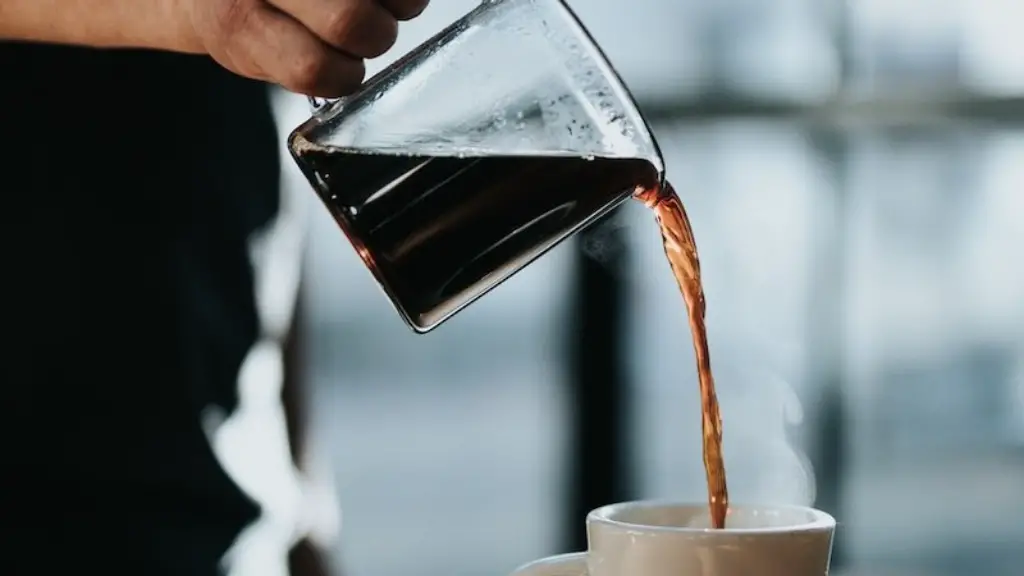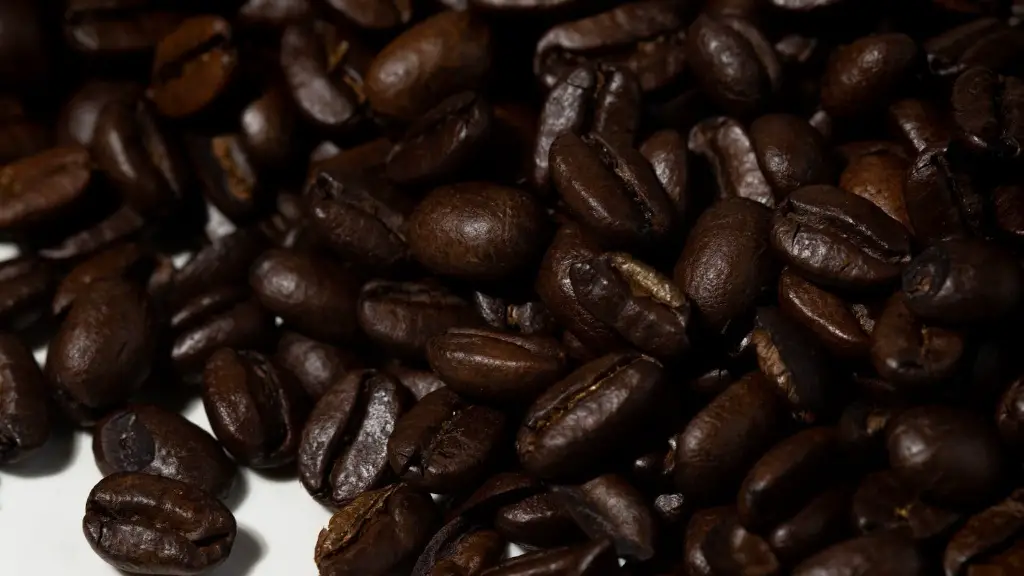Initial Considerations
The question of whether one should brush their teeth after drinking coffee has been subject to much debate, and the answer is not a clear-cut one. Nevertheless, it is important to consider a few factors before making a decision in regards to this. Firstly, it is vital to understand what it is about coffee that could potentially interfere with brushing.
It is well known that coffee contains tannins, a type of polyphenol that has an astringent quality. When tannins come into contact with saliva, they can produce an effect in the mouth that can be described as parching or drying. In addition, most coffees contain some amount of sugar (in the form of added sugar or natural sugar), which can also stick to teeth and affect oral hygiene. For these reasons, some experts advise waiting at least forty-five minutes after drinking to brush teeth.
In addition to the potential of tannins and sugar, it is important to consider the acidity level of coffees and other beverages. Drinking coffee may increase acidity in the mouth, which can affect the balance of oral flora and cause problems for tooth enamel if the pH levels dip too low (below 5.5). For these reasons, it is generally advised that one wait at least an hour before brushing.
Some dentists also advise avoiding brushing immediately after drinking, as it can be too harsh on sensitive teeth that have already been exposed to such acids. The American Dental Association (ADA) recommends waiting a half-hour after drinking or eating to brush. It is also a good idea to rinse with water afterward.
Finally, it is important to consider the type of coffee in question. Dark roasted coffees tend to have more tannins and can be harsher on teeth, while lighter coffees have fewer tannins and may not dry out the mouth as much. In addition, decaffeinated coffee has lower levels of tannins, and therefore may not require as long of a waiting period before brushing.
The Impact of Coffee on Teeth
It has been long established that coffee is a bitter beverage that can lead to dental staining, enamel corrosion and potential damage to the teeth. Tannins are not only responsible for coffee’s bitter flavor, but they can also be abrasive to enamel. The longer coffee remains in contact with teeth, the more damage it can cause over time. This is why it is important to be aware of other risks as well, such as the ability of sugar to be absorbed and stick to teeth.
Regularly drinking coffee can also lead to teeth turning a yellowish color. The tannins and acidity in coffee can cause calcium to be removed from the teeth, and the sugar in the beverage can combine with saliva to form plaque. If not removed quickly, the plaque can become a source of staining for the teeth.
Although brushing after drinking coffee can help to remove some of the stains, it is important not to brush too soon. This can actually cause the enamel to become worn down and make teeth more vulnerable to staining. For this reason, it is best to wait at least an hour before brushing, since the enamel will have had a chance to harden after being exposed to the acids in the beverage.
It is also a good idea to brush your teeth twice a day, as this will help to reduce the amount of bacteria and food particles stuck to the teeth. Using an electric toothbrush can help to limit the buildup of stains, and using whitening toothpaste can help to reduce the appearance of any teeth discoloration.
Alternative Solutions
For those who cannot wait forty-five minutes to an hour before brushing, there are other methods available to help protect teeth from the effects of coffee. Drinking water after each cup of coffee can help to dilute the acids and wash away any residue left behind. In addition, reducing the number of cups of coffee that one consumes each day can help to reduce the risk of staining over time.
Chewing sugar-free gum or dissolvable oral rinses can also help to eliminate bacteria and food particles stuck to the teeth. This can help to reduce the chances of plaque forming, and it can also help to reduce the risk of staining. Other drinks such as tea, milk and green juices can also help to neutralize acids and reduce the risk of staining.
It is important to keep in mind that the best way to protect teeth from the effects of coffee is to keep a good oral hygiene routine. This includes brushing at least twice a day and flossing regularly. It is also a good idea to use a fluoride rinse regularly to help protect the teeth from acids and bacteria.
In summary, it is important to take necessary precautions when drinking coffee in order to reduce risk factors that can lead to staining, enamel erosion and damage to the teeth. Taking care to wait at least forty-five minutes before brushing, as well as reducing the number of cups consumed each day, can help to protect teeth from the damaging effects of coffee.
Professional Advice
For most people, brushing twice a day and avoiding excessive consumption of coffee are sufficient in order to keep teeth healthy. However, it is always a good idea to consult a dentist if you have any concerns. A dentist can assess the condition of your teeth and recommend a treatment plan that is tailored specifically to your needs.
Dentists may also be able to provide advice on the types of foods and beverages that can help to protect teeth from the effects of coffee. They can also advise on the types of treatments (in-office or at-home) that can help to reduce the appearance of any existing stains or discoloration. Most dentists also recommend the use of fluoride toothpaste or mouthwash for added protection.
Ultimately, it is important to follow the advice of a dentist in order to ensure that one’s teeth stay healthy for a long time. Taking care of one’s teeth and maintaining a good oral hygiene routine is key to preventing any dental issues from developing.
Dietary Recommendations
It is important to be aware of the foods and beverages that can have a negative effect on teeth and cause staining, which is why it is a good idea to maintain a balanced diet. Foods and beverages that are high in sugar, such as candy and soda, should be avoided as they can cause tooth decay and cavities. In addition, acidic foods and drinks, such as citrus fruits and tomatoes, should be consumed in moderation as they can weaken enamel and cause staining over time.
In addition to avoiding sugary and acidic foods and drinks, it is also beneficial to consume foods high in calcium and phosphorus. These minerals are important for maintaining strong teeth and protecting them from the negative effects of coffee and other beverages. Dairy products such as cheese and yogurt, as well as fish with soft bones (such as sardines, salmon and mackerel) are all good sources of calcium and phosphorus.
It is also a good idea to increase the intake of fiber-rich foods, such as fruits and vegetables, in order to reduce the risk of staining. Fiber helps to bind to the acids and tannins found in coffee, allowing them to be more easily washed away. In addition, crunchy vegetables and fruits help to keep the gums healthy and reduce the chances of staining.
Finally, it is important to ensure that one is drinking enough water. Not only does this help to dilute the acids and tannins found in coffee and other beverages, but it also helps to keep the mouth hydrated. A well-hydrated mouth is less likely to get stained and is less likely to experience enamel erosion.
Preventative Practices
Taking proactive steps to protect teeth from the harmful effects of coffee is another important way to maintain good oral health. For starters, using a straw when drinking can help to minimize the contact that coffee has with the teeth. It is also important to rinse the mouth with water after each cup in order to dilute the acids and tannins.
In addition, using a whitening toothpaste can be useful in preventing staining. Additionally, whitening trays or strips can be applied to teeth on a daily basis in order to further reduce any discoloration. Using a tongue scraper can also help to remove any residual coffee particles that may be stuck to the tongue.
Another preventative measure that can be taken is to use a toothbrush with soft bristles. This will help to prevent the brushing from being too abrasive and damaging the enamel. It is also important to avoid brushing too hard or too frequently, as this can strip away the enamel and leave teeth vulnerable to damage.
Finally, it is important to visit a dentist regularly in order to ensure that teeth are in good condition. The dentist will be able to recommend any treatments that may be necessary in order to protect teeth from the negative effects of coffee. Regular check-ups will also help to catch any potential issues early on, and make sure that teeth remain healthy for a long time.





